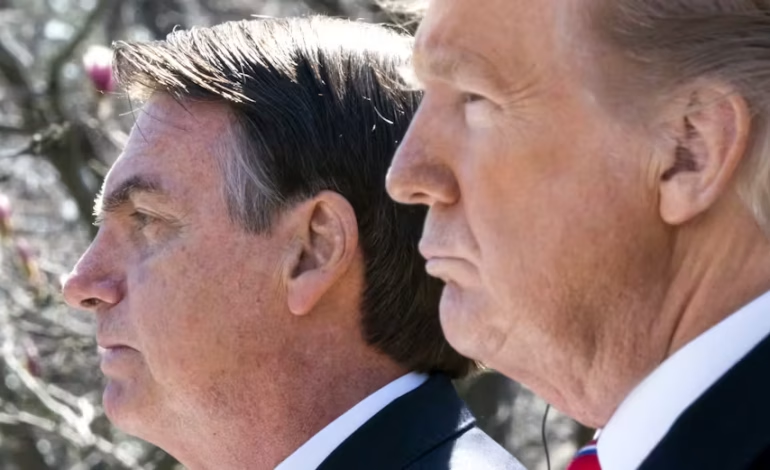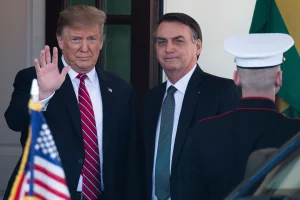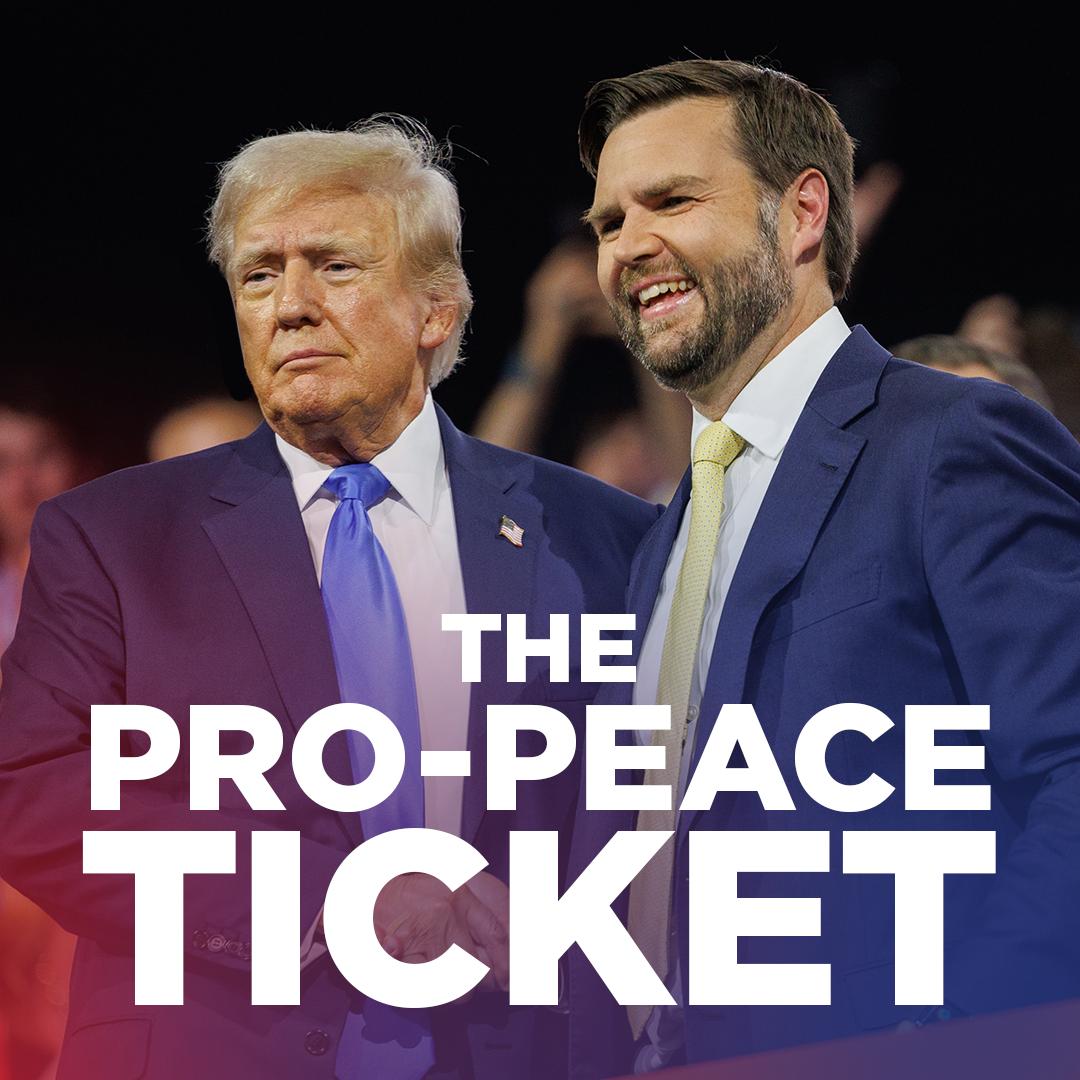EXCLUSIVE: Trade or Trial? U.S.–Brazil Tensions Escalate as Trump’s Tariff Decision Sparks Backlash

On July 9, U.S. President Donald Trump imposed a sweeping 50% tariff on Brazilian exports to the United States, sending shockwaves through diplomatic and economic communities in both nations. While new tariffs have long been expected under Trump’s revived economic plan, the timing and the reason behind this action caught many off guard.
Trump explained the move in a letter to his Brazilian counterpart Luiz Inácio Lula da Silva, saying that the ground behind the decision was not linked to trade deficits or domestic industry protection but rather on the ongoing trial of Brazil’s ex-president Jair Bolsonaro, who is under scrutiny for his alleged involvement in a coup attempt in early 2023 after his failure in the 2022 election.

To better understand this convergence of foreign policy and trade pressure, Wyoming Star spoke with Dr. Kenneth A. Reinert, Professor of Public Policy at George Mason University.
- How might this politically motivated tariff impact U.S.–Brazil economic relations and influence trade dynamics in the hemisphere?
This will have significant and negative impact on U.S.–Brazil economic relations for two reasons:
- First, the U.S. normally runs a trade surplus with Brazil, and this fact undermines the argument that the tariffs are meant to redress imbalanced trade in goods. This makes the action appear to be purely political.
- Second, the tariffs are explicit in citing judicial issues in Brazil (in response to lobbying by former Brazilian President Eduardo Bolsonaro), and this is a brand-new element in U.S. trade policy.
- Could such a move trigger retaliatory measures from Brazil or affect Brazil’s stance in BRICS and future bilateral deals?
Yes, although Brazil is a large economy, it does not have a lot of room to retaliate. Any retaliation will probably be confined to specific products. However, the Trump administration’s move will strengthen Brazil’s ties to BRICS, but most notably to China.
During the first U.S. Trump administration, U.S. soybean farmers lost the Chinese market to Brazilian soybean farmers. President Lula has already had a state visit to China but not the United States.
The tariffs will strengthen Brazil-China ties.
- What are the potential domestic consequences in the U.S.—for industries and consumer prices—of a 50% tariff on Brazilian imports?
Most (not all) of the burden of tariffs falls on U.S. consumers and firms. The tariffs on Brazil are one of many dramatic U.S. trade policy changes. Taken together, they have quadrupled the U.S. effective tariff from 2.5 percent to 10 percent.
This will ultimately raise domestic prices. In the specific case of Brazil, intermediate products such as fuels, iron and steel, aluminum, coffee and others will be impacted.
- Is this tactic a sign of a broader trend in trade policy or a one-off calculation tied to Trump’s relationship with Bolsonaro?
Along with the inclusion of the fentanyl issue with Canada, the judicial issues raised in the case of Brazil do seem to indicate a broader trend. The fact that the United States has a free trade agreement with Canada makes the trend all the more surprising, and something similar might also occur with South Korea, another country with which the U.S. has an FTA.
Brazil has been put in a quandary, because its judicial processes are a sovereignty issue.
Editor’s Note
The tariff imposition has brought to light the already existing divisions in Brazil’s political landscape. While Lula’s firm initial pledge of retaliation gained praise from his supporters as a defensive response of national dignity, others denounced the president and the government for allowing the setback in ties with Washington.

The most notable development in the situation is the first time in recent history that Washington has openly linked economic punishment to meddling in a judiciary process. Bolsonaro’s son, Eduardo Bolsonaro, has actively lobbied in the U.S. the on his father’s behalf, with many in Brazil connecting the new tariffs and that influence.
As domestic industry and agriculture get ready for possible fallout, it remains to be seen whether Brazil’s powerful exporters will pivot toward China and the BRICS bloc.









The latest news in your social feeds
Subscribe to our social media platforms to stay tuned